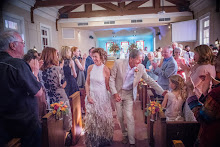Monday, Feb. 6: Kind vs. Harsh Improvement
TWO KINDS OF IMPROVEMENT
In one kind of improvement, we feel deficient and want to get better so we won’t feel deficient any more. This kind of improvement can be a drag because we are rating ourselves and hating ourselves, we are falling into the old, “I’m not good enough story.”
Now, the Byron Katie work is always, always good when we start to beat ourselves up with our ideas.
And understanding is good, too. Clarity. “Not good enough for what?” That’s a great question to ask.
This morning Marlie was wanting to avoid going to something because she felt as if she weren’t very good at it, a certain type of Feldenkrais work. First of all, she’s good at it, but more important, this is a great example of something we all do for ourselves. I sign up for a drawing class, and want to quit because everyone else is “better than me.” But notice what the thinking is here: the thinking is that I have to be instantly “good” at something I’m trying to do.
This is why we so often quit what we start. We want Performance. We want an A plus. And if we can’t be instantly good, then forget it.
But that’s the kind of improvement that isn’t really improvement, it’s instant genius. Maybe some of us have it in some things, but most of us in most things, improve only in stages, and the more we can get “into” whatever stage we’re at, the easier and the happier the learning is going to be.
So, improvement that says, this is my first drawing class, make me Picasso, or I’ll quit, is silly, and it’s how we act, a lot. The goal is the goal: I’ve got to “draw good,” or in yoga, “do this pose really deep and great,” or in music, “play this piece really super.” This is being mean to ourselves.
But what if the goal is to understand the process on the way to the goal. The goal is to understand how we do something, not what it is we are trying to perform. To be kind, and to have a good life, and to improve in reality, we can slow down and get fascinated by the process. We can find little stages of learning, and get excited about them, then we can learn. If we can find the stage at which we are right now, and then can advance from that in a little and fun way, then life becomes a joy.
This is why I’m inventing Felden-Yoga™. I want a way for people to approach every asana as a game, as play, as a way to understand their breathing and their spine and their sensing better. To be in any shape is not important in Felden-Yoga™. What is important, is being present and learning little bits every time you go about it. This brings delight and improvement all in one and this is what real improvement is about: delight, presence, and learning. What a gift, a life full of this kind of kind and joyful improvement.






0 Comments:
Post a Comment
Subscribe to Post Comments [Atom]
<< Home